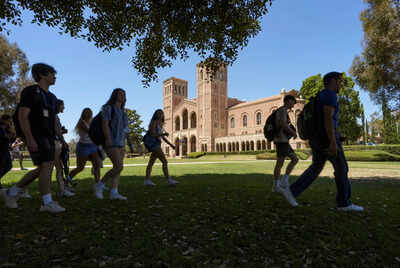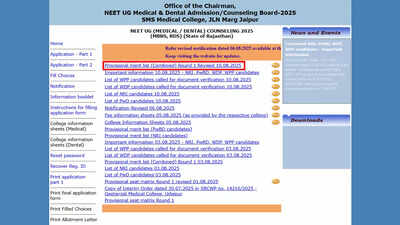The University of California, Los Angeles (UCLA) has been embroiled in a complex civil rights and funding crisis that has unfolded over the past year. At the center of the controversy are accusations by the United States Department of Justice (DOJ) that the university failed to adequately address antisemitic incidents on campus. These allegations have resulted in significant federal funding freezes, costly settlements, and heightened scrutiny of the institution’s policies and campus climate.A complete timeline of the federal actions and settlements involving UCLA, based on Associated Press reports, is outlined below.
Early 2024: Initial DOJ investigation and funding suspensions
In early 2024, the Trump administration began scrutinising UCLA following civil rights complaints related to antisemitic incidents and other campus issues. The DOJ’s Civil Rights Division launched an investigation that concluded UCLA had acted with “deliberate indifference” by allowing a hostile environment for Jewish and Israeli students during the 2024 pro-Palestinian protests. During these protests, demonstrators allegedly blocked access to campus classrooms and areas, further exacerbating tensions. As a result, the administration froze $339 million in federal research grants, including approximately $240 million from the Department of Health and Human Services and the National Institutes of Health. The National Science Foundation also confirmed suspensions citing misalignment with agency priorities. The Department of Energy joined in, citing admissions practices it deemed discriminatory, such as soliciting applicants’ race in personal statements and considering socioeconomic factors in ways that disadvantaged white, Jewish, and Asian American applicants. Affirmative action in California had been banned since 1996 and was further curtailed by a 2023 Supreme Court ruling. In addition to antisemitism allegations, the Department of Energy criticised UCLA’s handling of women’s athletics, particularly regarding transgender athlete participation.
Mid-2024: Legal settlements and administrative responses
In response to the mounting pressure, UCLA reached a $6 million settlement with three Jewish students and one Jewish professor who sued the university over the hostile campus environment during the protests. As part of the settlement, the university pledged $2.3 million to several organisations dedicated to combating antisemitism and supporting Jewish students. UCLA also established an Office of Campus and Community Safety and implemented new policies for managing protests. Chancellor Julio Frenk described the funding freeze as “deeply disappointing” and warned about the adverse effects on ongoing research and academic work. He emphasised that the severe penalties failed to address the underlying issues and instead threatened critical scientific progress.
Late 2024: Expanded funding freeze and escalating federal pressure
By late 2024, the funding freeze escalated significantly. Reports from The New York Times and The Los Angeles Times detailed that nearly $200 million in science, medical, and academic research grants were suspended, affecting hundreds of ongoing projects. The National Science Foundation alone cancelled approximately 300 grants worth $180 million. These funds supported research in fields including biomedicine, engineering, public health, and artificial intelligence. Attorney General Pam Bondi publicly stated that UCLA exhibited “deliberate indifference” to antisemitic incidents and warned of “a heavy price” for failing to protect civil rights. The university continued to deny wrongdoing but committed to concrete reforms and further cooperation with federal authorities.
Early 2025: $1 billion settlement demand and broader context
In August 2025, the Trump administration formally demanded a $1 billion settlement from UCLA, marking the largest such penalty ever sought from a public university. The DOJ charged UCLA with violating Title VI of the Civil Rights Act of 1964 and the equal protection clause of the Fourteenth Amendment by failing to prevent a hostile educational environment for Jewish and Israeli students. The allegations mainly focused on the university’s handling of protests related to the Israel-Hamas war in 2024, during which violence and arrests occurred. California Governor Gavin Newsom condemned the demand as political extortion, asserting that California would not capitulate as some private universities have. James B. Milliken, newly appointed president of the University of California system, called the settlement “devastating” for the public university system and stated UCLA’s willingness to engage in a “good faith dialogue” with the DOJ. This demand follows a pattern of settlements with other universities, including $50 million from Brown University and $221 million from Columbia University, with Harvard University reportedly facing ongoing negotiations.
Implications for students, research, and higher education
The frozen federal funds and pending settlements have severe consequences for UCLA’s research community. Funding suspensions threaten faculty-led projects, graduate student fellowships, and vital scientific advancements. Chancellor Frenk highlighted the potential damage to both UCLA and national interests, noting the university’s role in conducting groundbreaking research. The federal government’s strategy appears to increasingly link civil rights compliance to research funding, leveraging financial pressure as a means of enforcement. The Columbia settlement, which restored over $400 million in research grants following a $200 million penalty, may serve as a template for how the government addresses other institutions. For UCLA students and faculty, the crisis has created uncertainty around academic programs and research opportunities. While the university maintains its commitment to an inclusive and safe campus environment, the ongoing negotiations and legal challenges suggest that the institution faces a challenging road ahead. UCLA’s funding freeze and civil rights crisis reflect broader national debates around campus climate, civil rights enforcement, and the role of federal oversight in higher education. As the 2026 elections approach, further actions of this nature may emerge, placing more universities under scrutiny. The resolution of UCLA’s case will likely have significant implications for how public universities balance institutional reform with academic freedom and scientific innovation.TOI Education is on WhatsApp now. Follow us here.






